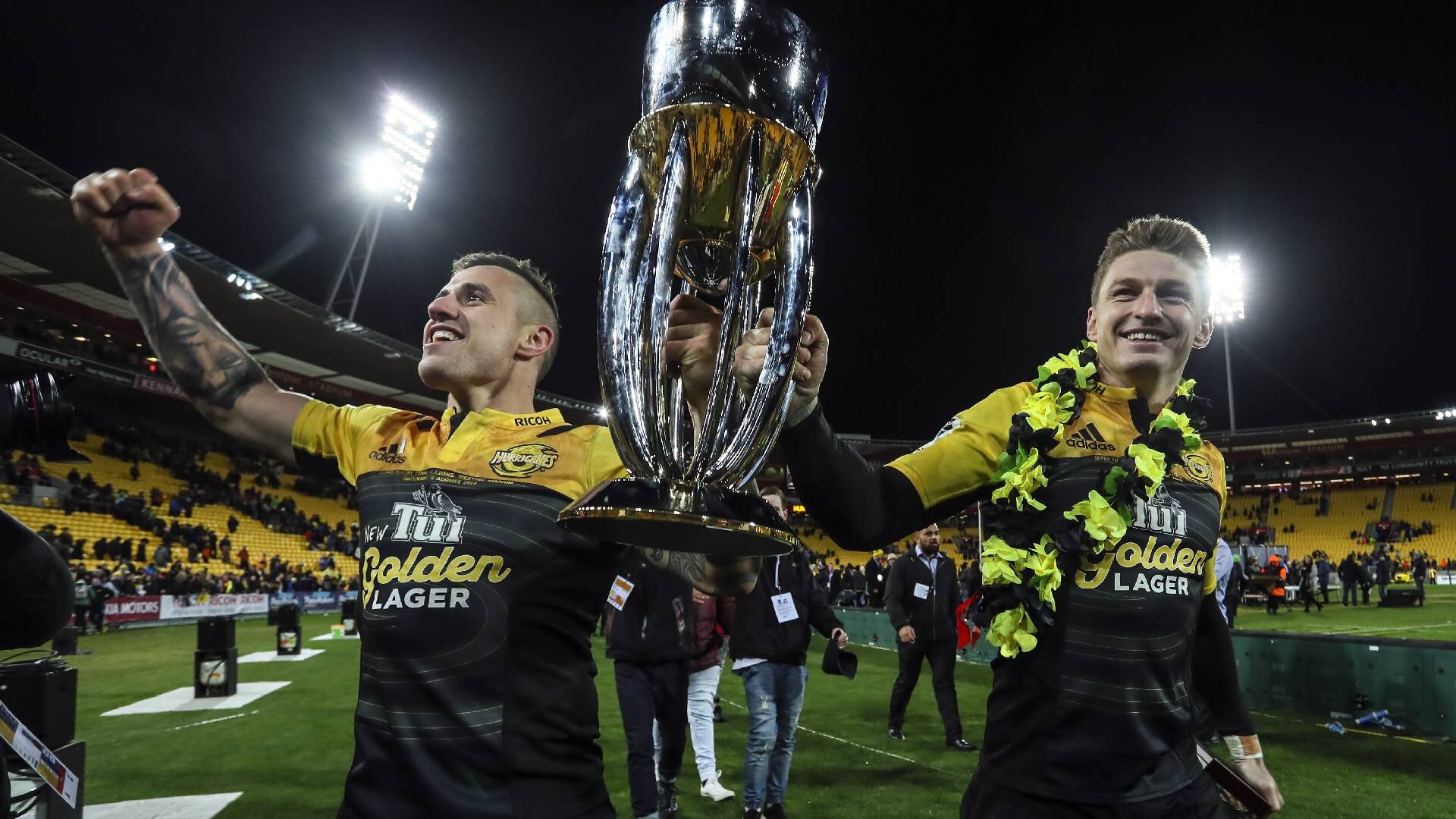Super Rugby Teams of the Decade: The Hurricanes all-stars of the last 10 years

After having profiled the Blues and Chiefs earlier this week, our Super Rugby Teams of the Decade series moves into the Kiwi capital as we outline a XV of the best Hurricanes players to have donned the yellow and black jersey over the last 10 years.
The 2010s proved to be a breakthrough period for the Wellingtonians, as after years of luckless campaigns and two unsuccessful outings in the competition’s final, the Hurricanes brought the Super Rugby trophy to Westpac Stadium for the first time in 2016 in what remains the club’s sole title.
Their championship season came on the back of a tumultuous beginning to the decade under the guidance of Highlanders assistant coach Mark Hammett, who unceremoniously sacked franchise legends Ma’a Nonu, Andrew Hore and Piri Weepu in 2011.
The Season: Hamilton Boys High School – Episode 5
However, the arrival of Chris Boyd in 2015 spurred a run of five successive play-off appearances, and under the tutelage of incumbent boss John Plumtree, the Hurricanes have maintained a reputation as one of the most exciting teams to watch in the southern hemisphere.
That brand of enterprising rugby has resulted in many star players coming through the club’s system, and as a result, the Hurricanes’ team of the decade features some of the world’s brightest rugby talents.
Hurricanes Team of the Decade
1 – Reggie Goodes
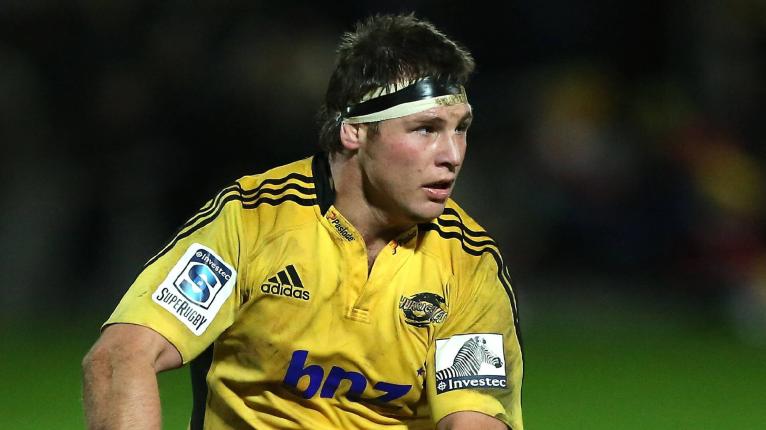
South African-born loosehead prop Reggie Goodes immigrated to New Zealand as a teenager and impressed as a rugby-playing prospect during his time at Wellington College before going on to break into the first-class ranks with the Wellington provincial side in 2010.
A Hurricanes debut ensued two years later, and the 1.84m, 116kg front rower became a mainstay during both Hammett’s and Boyd’s tenures, racking up 60 matches for the club between 2012 and 2016.
Goodes wasn’t seen in a Hurricanes jersey against after the franchise’s title-winning tilt three years ago, with concussion issues eventually forcing him to retire last February at the age of 26.
Other contenders to claim the No. 1 jersey include current squad member Chris Eves and Clermont prop Loni Uhila, but Goodes’ exploits at the Hurricanes this decade surpass the efforts of his former teammates.
2 – Dane Coles
The Hurricanes have been blessed with an array of classy hookers since the beginning of the decade, but it’s really a no-brainer to include current captain Dane Coles in this side.
After first coming onto the Super Rugby scene as a fresh-faced 22-year-old in 2009, the Paraparaumu native succeeded Andrew Hore as the Hurricanes’ premier rake after the ex-All Black’s departure to the Highlanders in 2011, and was rewarded with an international debut the following year.
Since then, Coles has gone on to establish himself as one of the best hookers on the planet.
The 69-test veteran’s scintillating running ability and deft distribution skills helped make him a key component of the All Blacks‘ 2015 World Cup success, and after skippering the Hurricanes to their maiden crown as well as becoming a club centurion two years ago, the 2016 World Rugby Player of the Year nominee’s legacy with the franchise is undisputed.
Subsequently, it has been tough for the likes of Asafo Aumua, Ricky Riccitelli and Motu Matu’u to emerge from Coles’ shadow, despite their respective talents.
3 – Jeff Toomaga-Allen
With 117 Hurricanes appearances to his name, it’s difficult to overlook the contribution that one-test All Black prop Jeff Toomaga-Allen made to the side during his eight-season spell at the club.
A former member of the New Zealand U20 side, the 29-year-old achieved the unusual feat of making his Super Rugby debut before playing at provincial level after being drafted into the Hurricanes squad in 2012.
His rapid rise was indicative of how highly he was regarded by franchise officials, though, and a solitary All Blacks outing came against Japan a year later.
Now with Premiership outfit Wasps, Toomaga-Allen beats out dual World Cup-winner Ben Franks and long-serving veteran Ben May for a place in this team.
4 – Jeremy Thrush
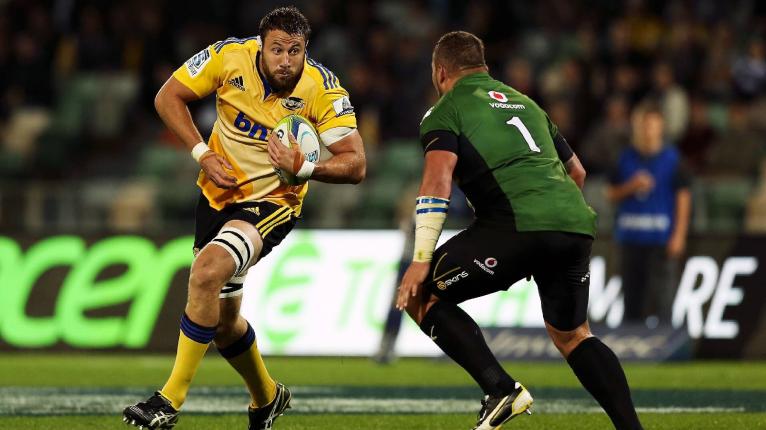
The Hurricanes have often been lambasted for their lack of quality players in the tight five, but that doesn’t do Jeremy Thrush justice given the amount that he offered to the team of which he played for 110 times over an eight-year span.
Standing at 1.98m and 118kg, the 34-year-old was a behemoth to deal with during his time in Wellington between 2008 and 2015, with his physical stature certainly benefitting the Hurricanes’ set piece.
The 11-test All Black left Kiwi shores four years ago to join Premiership club Gloucester, but he has since returned to Australia to play for the Western Force in the Global Rapid Rugby competition.
Worcester Warriors second rower Michael Fatialofa can feel aggrieved to have missed selection after his admirable input during his three-year stay at the Hurricanes between 2016 and 2018.
https://www.instagram.com/p/B559QByA4zV/
5 – James Broadhurst
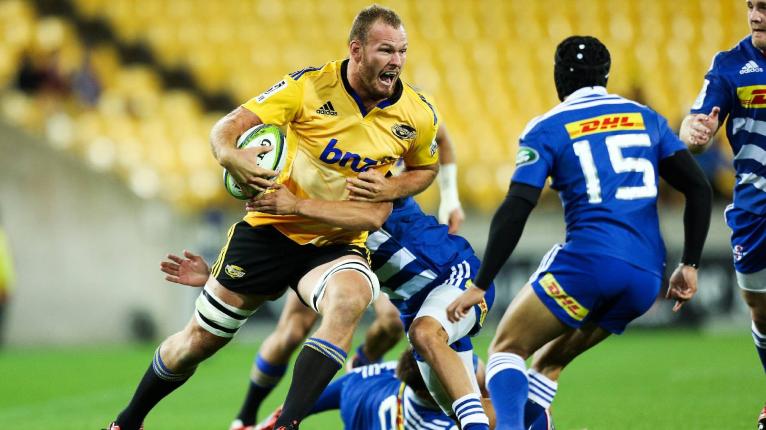
If Thrush can be considered a behemoth, then spare a thought for those who had to mark one-test All Blacks lock James Broadhurst, who possessed dimensions of 2.01m and 122kg.
With such an imposing frame, it’s understandable why the Hurricanes deployed him 71 times after his Super Rugby debut in 2010.
So good was the 31-year-old that he won a maiden All Blacks call-up in 2015, and made a 40-minute appearance against the Springboks in the Rugby Championship that year.
That would be the last time he would wear the black jersey, though, as concussion concerns forced him from the game in 2017 after having been sidelined for more than a year-and-a-half.
6 – Brad Shields
Although he was born-and-raised within the Hurricanes region, Brad Shields gave up on his All Blacks dream and left the club of which he played for 103 times to pursue a test career with England last year.
That doesn’t diminish the legacy he left at Westpac Stadium, though, as the eight-test blindside flanker was a formidable force for the Hurricanes after first playing for them in 2012.
An exceptional leader who was tenacious defensively and unrelenting on attack, Shields starred for the Wellingtonians en route to their 2016 title, and captained his side to a famous draw against the British and Irish Lions in 2017 before joining Toomaga-Allen at Wasps.
His inclusion in this team is unfortunate for Vaea Fifita, who many could argue deserves the No. 6 jersey after earning 11 All Blacks tests through his deeds with the Hurricanes.
7 – Ardie Savea
A prodigiously talented teenager who came through the ranks at Wellington’s Rongotai College, Ardie Savea has evolved into one of the best players in the world.
The 26-year-old has become renowned for his rampaging, supremely athletic style of play with ball in hand, and possesses an industrious work rate that has seen him overtake Sam Cane as New Zealand’s premier openside flanker.
Savea was a nominee for World Rugby Player of the Year this season, and, like many in this team, was an integral figure in the Hurricanes’ successful bid for the Super Rugby crown three years ago.
Therefore, there should be no debate surrounding the 44-test All Black’s inclusion in the Hurricanes’ team of the decade.
https://www.instagram.com/p/B56Jhkug_mm/
8 – Victor Vito
Another star of the 2016 side, Victor Vito’s name was ever-present in the Hurricanes’ match day squads during his eight-year stay with the club, which began in 2009.
Standing at 1.92m and 112kg, Vito was a frightening prospect for opposition defences, who were frequently blown apart by the two-time World Cup-winning All Black when he was in full flight.
The barnstorming loose forward earned his 100th Hurricanes cap in his final match for the franchise, which fittingly came in the 2016 final during his side’s 20-3 victory over the Lions in front of a packed home crowd.
Now plying his trade in France for La Rochelle, the 2017 Top 14 Player of the Year ousts Scotland international Blade Thomson for a spot in this all-star team.
9 – TJ Perenara
Before the dawn of the decade, Piri Weepu was unanimously regarded as the Hurricanes’ all-time top halfback, but that all changed following TJ Perenara’s Super Rugby debut in 2012.
Capped at provincial level for Wellington while still a schoolboy, Perenara has gone on to accumulate 127 appearances for the Hurricanes as his leadership, running game, defensive qualities and nose for the tryline have all proven to be indispensable.
The 27-year-old’s talents have seen him play in 64 test matches for the All Blacks since 2014, and the 2015 World Cup-winner’s value within the Hurricanes’ set-up will only continue to grow in the coming years.
10 – Beauden Barrett
Undoubtedly the greatest first-five ever to wear the Hurricanes jersey, Beauden Barrett can largely be thanked for the franchise’s breakthrough title.
Their dominant run through the play-offs that season coincided with Barrett’s phenomenal burst of form which saw him wrangle the All Blacks’ No. 10 jersey off Aaron Cruden.
Three years and two World Rugby Player of the Year accolades later, the 28-year-old, who scored a record 1244 points from 125 matches for the Hurricanes, has become arguably the highest-profile name in rugby.
Capped 83 times internationally, Barrett’s electric speed and freakish game-breaking ability will be sorely missed in Wellington as he embarks on a four-year deal with the Blues next season.
https://www.instagram.com/p/B501jWxAT9s/
11 – Julian Savea
As one of the game’s most feared finishers, Julian Savea was a highly-valued asset for the Hurricanes during his eight-year tenure at the Cake Tin.
With dimensions of 1.92m and 108kg, there were a plethora of quality right wingers who Savea made a mockery out of through his physical prowess since his debut in 2011, which has made for an exceptional highlights reel.
Although his form dipped drastically in his final few years with the Hurricanes, the 29-year-old still managed 52 tries from 120 appearances, and has one of the best strike rates in the international game with 46 tries from 54 tests for the All Blacks.
Left New Zealand for France last year, where he currently plays in the Top 14 for Toulon.
12 – Ngani Laumape
Since leaving the Warriors in the NRL to link up with the Hurricanes four years ago, Ngani Laumape has blossomed into one of the most damaging ball-carriers in Super Rugby.
The 26-year-old was perhaps under-utilised in the Hurricanes’ golden 2016 season, but he has gone on to make a thunderous impact in the following years, often leaving defenders sprawled across the park while scoring 41 times from 60 appearances in the southern hemisphere’s premier club competition.
An All Blacks debut came against the British and Irish Lions in 2017, and the 13-test midfielder was regarded as one of the unluckiest players to have missed out on this year’s World Cup in Japan.
Franchise legend Ma’a Nonu shaped as Laumape’s biggest threat for a place in this side, but his inclusion the Blues’ team of the decade rules him ineligible for Hurricanes selection.
https://www.instagram.com/p/B516rQ3gtPX/
13 – Conrad Smith

After accruing 126 matches for the Hurricanes during his 12-year affiliation with the club between 2004 and 2015, Conrad Smith can lay claim to being arguably the best player in the franchise’s history.
Famed for his sharp rugby brain, immaculate defence, sound distribution and immense leadership, Smith formed the greatest midfield partnership in history alongside Nonu at both Super Rugby and international level.
The former Hurricanes captain, who won 94 tests for the All Blacks, ended his decorated playing career with French club Pau last year, where he remains as part of their coaching staff.
While there’s no denying the impact Smith had for both club and country, he had to fight off the challenge of one-test All Blacks centre Matt Proctor for a spot in this side.
14 – Cory Jane
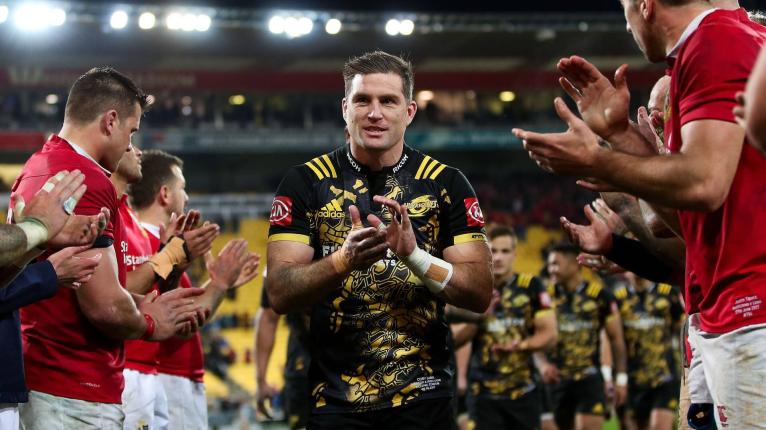
The red-hot form of ex-Hurricanes star Nehe Milner-Skudder in 2015 made the right wing spot one of the toughest areas of selection for this team, but the longevity and legacy of club great Cory Jane has won him the No. 14.
After debuting for the franchise in 2007, Jane entered the new decade as a vital piece of the squad make-up through his safe hands under the high ball, wicked pace and monstrous left-hand fend.
It were those attributes that made him a star for the All Blacks during their 2011 World Cup success, and although his ability began to wane towards the end of his 55-test career, which concluded in 2014, he remained on board with the Hurricanes right through until 2017.
Was rewarded for his services to the Wellington-based side with a try in the 2016 final, and retired from rugby a year later with 29 tries from 110 Super Rugby caps to his name.
Manu Samoa international Alapati Leiua and current Hurricanes squad member Vince Aso could also mount cases for inclusion in this team.
15 – Jordie Barrett
While he only partook in the final three Super Rugby seasons of the decade, there are few who can topple Jordie Barrett’s influence on the Hurricanes since debuting for the club in 2017.
As a Barrett, the 22-year-old brother of Beauden had a lot of hype to live up to when he was first thrust into the squad, and although there are still rough edges to his game that need to be ironed out, it’s difficult to ignore the wealth of talent the youngster has showcased during his time in the capital.
Capable of playing anywhere between first-five and fullback, Barrett’s outstanding all-round skill set has made him one of the first names to be jotted on the Hurricanes’ team sheets.
After scoring 261 points from 48 Super Rugby matches, the Francis Douglas Memorial College old boy has gone on to accumulate 17 tests and 73 points for the All Blacks over the past three seasons, which is enough to usurp former sensation Andre Taylor, whose spectacular form in 2012 warrants a special mention.
In other news:

















































